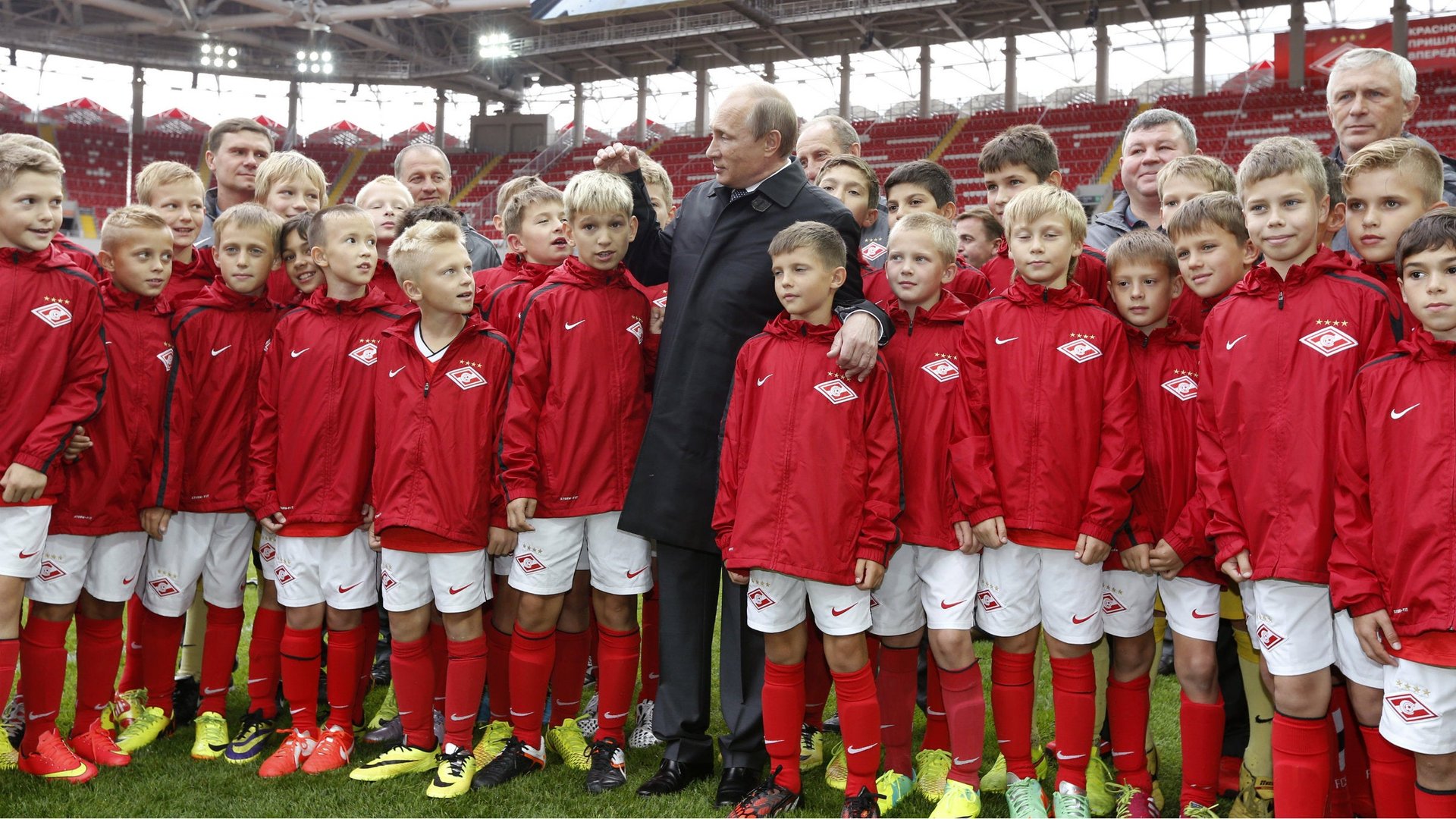Ceasefire or not, the real lever on Russia is the World Cup
A confused exchange of public statements about a possible ceasefire between Russia and Ukraine have thrown today’s talks on new sanctions—including a future threat to Russia’s hosting of the 2018 World Cup—into disarray.


A confused exchange of public statements about a possible ceasefire between Russia and Ukraine have thrown today’s talks on new sanctions—including a future threat to Russia’s hosting of the 2018 World Cup—into disarray.
In statements this morning, Ukrainian president Petro Poroshenko’s office said he had spoken with Russian president Vladimir Putin, and that the two had agreed to a “permanent ceasefire” in eastern Ukraine. But then Dmitry Peskov, Putin’s spokesman, said that actually the two leaders had only discussed “steps that would facilitate a cease-fire.” In any case, Peskov said, Putin could not agree to a ceasefire, because Russia isn’t a participant in the fighting.
Then, Poroshenko’s website amended his statement, saying the presidents had agreed to a “ceasefire regime.” “The parties reached mutual understanding on the steps that will facilitate the establishment of peace,” Poroshenko’s office said. As for the separatists themselves, they said no ceasefire is in effect.
The overall picture is one of Poroshenko energetically seeking to halt hostilities, and Putin not so much. That may be because a ceasefire will favor Kyiv, which is on the defensive.
It is not clear what impact, if any, the flurry of countermanded statements will have on the European Commission. The EU is considering harsher sanctions on Moscow as a result of an offensive by Russian troops and armor in recent days that has put Kyiv forces back on their heels.
The Russian offensive has angered some European leaders—specifically German chancellor Angela Merkel–and increased the threat of tighter sanctions on Russian banks and oilfield development. But other Europeans, especially Hungary, Slovakia and the Czech Republic, have opposed new sanctions, and the talk of a ceasefire could arm them with reason to wait.
Will the Russian refusal to grab the offer of a truce make Europe even angrier? Or does the ceasefire talk change the mood in Europe? “I think new sanctions are coming,” the Kennan Institute’s Matthew Rojansky tells Quartz. “Thus far no ceasefire has held or even been fully respected by both sides. Even if Kyiv and Moscow agree, there are too many unaccountable armed actors on both sides.”
If they are approved, the new sanctions could be tough
According to a three-page draft document (paywall) obtained by the Financial Times, the EU would join the US in barring banks from lending money to Russian-controlled oil- and weapons-making companies through the issuance of bonds. This would affect Rosneft, the state-controlled Russian oil giant, which is on an aggressive path of developing Arctic and Siberian fields with ExxonMobil and other western supermajors.
Also significant, European oil service firms would be barred from working for companies such as Rosneft. This would be important because if in the future Russia could not keep working with ExxonMobil, it might otherwise seek to hire an oil service company such as France’s Technip to do the drilling.
Yet all of these measures may pale in comparison to a recommendation that, as a future step, Europe consider Russia’s suspension (paywall) from international sporting events, including the 2018 World Cup. Here’s what the memo says, quoted by the FT:
Besides economic measures, thought could also be given to taking coordinated action within the G7 and beyond to recommend suspension of Russian participation in high-profile international cultural, economic or sports events (Formula 1 races, UEFA football competitions, 2018 World Cup, etc).
If a suspension of the World Cup happens, “this will sting the Russians far more than anything the EU will do on finance this round,” Eurasia Group’s Mujtaba Rahman told the FT. Baltic nations such as Estonia and Lithuania are fans of the idea, and will probably keep bringing it up.
But Russia experts expressed doubts that such a move could happen. Moving the 2018 Cup from Moscow would probably be regarded as draconian. And, Andrew Kuchins of the Center on Strategic and International Studies tells Quartz, “FIFA is not an organization known for taking political stands on issues, to put it lightly.” He was referring to the Fédération Internationale de Football Association. Indeed, FIFA president Sepp Blatter has dismissed the idea.
It’s easier to imagine a boycott, such as the West did in the 1980 Moscow Olympics, which would not require any decision by FIFA, but would be a considerable sacrifice on both sides. Putin would not like it if Germany, Spain and France, for example, refused to participate—and those countries would be loathe to boycott. At this stage, the debate remains in the realm of theory, but it serves as a recognition of something Putin cherishes: the chance to show off in the premier global sporting event.